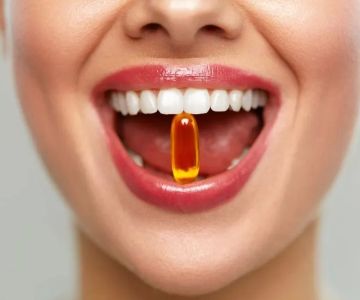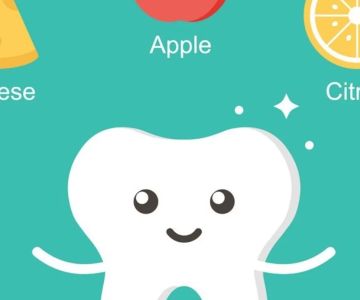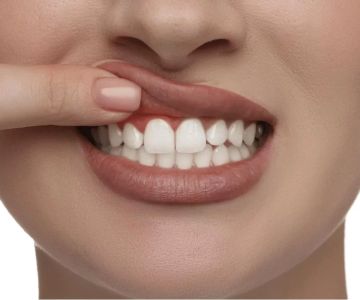How Does Diet Affect Oral Health? The Impact of Food on Your Teeth and Gums
1. The Connection Between Diet and Oral Health
Your diet plays a significant role in the health of your teeth and gums. The foods and beverages you consume directly affect the development of cavities, gum disease, and even the overall appearance of your smile. What you eat not only provides essential nutrients for your body, but it can also help or hinder the ability to maintain healthy teeth. In this article, we will explore how different types of food and drinks influence your oral health and offer practical tips for keeping your mouth in tip-top shape.
2. The Role of Sugar in Oral Health
One of the biggest culprits when it comes to poor oral health is sugar. When you consume sugary foods and drinks, bacteria in your mouth feed on the sugar and produce acids that attack the enamel of your teeth. Over time, these acids can cause tooth decay, leading to cavities and other dental issues. Foods like candies, pastries, sugary beverages, and even fruit juices can contribute to this process. The longer sugar stays in your mouth, the greater the chance of cavities forming.
One example that highlights the relationship between sugar and oral health is the story of a young child who regularly consumed sugary snacks throughout the day. Over time, this led to multiple cavities and a need for extensive dental work. If sugar intake had been limited and proper oral hygiene practices were followed, these issues could have been prevented. It’s crucial to remember that while sugar is a major concern, it’s not only the quantity but also the frequency of sugar consumption that can impact your oral health.
3. How Acidic Foods Affect Your Teeth
Another dietary factor that affects your oral health is acidity. Foods and drinks that are high in acid, such as citrus fruits, vinegar, and soft drinks, can erode tooth enamel over time. Enamel is the hard outer layer of your teeth that protects them from damage, and once it’s gone, it cannot be replaced. Acidic foods can weaken this protective layer, making your teeth more susceptible to decay and sensitivity.
A common scenario is when someone drinks a lot of acidic beverages like orange juice or soda throughout the day. While these drinks may provide short-term refreshment, the acid in these beverages can wear down enamel, leading to long-term dental problems. It's essential to balance these types of foods with proper oral hygiene and drink plenty of water to help neutralize acids in the mouth and keep your teeth protected.
4. The Benefits of Calcium and Vitamin D
On the flip side, certain nutrients can have a positive impact on your oral health. Calcium and Vitamin D are crucial for maintaining strong teeth and bones. Calcium helps to remineralize tooth enamel, making it stronger and more resistant to decay. Foods rich in calcium include dairy products like milk, cheese, and yogurt, as well as leafy green vegetables like kale and broccoli. Vitamin D, which is found in fatty fish, eggs, and fortified foods, plays a vital role in helping your body absorb calcium.
A person who includes calcium and Vitamin D-rich foods in their diet is less likely to experience dental issues like tooth decay and gum disease. For example, an individual who regularly consumes dairy products and takes a Vitamin D supplement has a lower risk of developing cavities compared to someone who doesn’t get enough of these essential nutrients. The relationship between diet and oral health is truly powerful, and incorporating these nutrients into your daily meals can make a significant difference.
5. The Impact of Hydration on Oral Health
Hydration is another important factor in maintaining good oral health. Drinking enough water helps rinse food particles and bacteria from your mouth, reducing the risk of plaque buildup and bad breath. Saliva, which is primarily made up of water, also helps protect your teeth by neutralizing acids and providing enzymes that aid in digestion. A dry mouth, on the other hand, can lead to an increased risk of cavities, gum disease, and other oral health issues.
One common example of dehydration affecting oral health is the development of dry mouth, which can lead to discomfort and an increased risk of tooth decay. People who consume caffeinated drinks or alcohol may experience dry mouth because these substances can reduce saliva production. Drinking plenty of water, especially after meals, can help keep your mouth moist and protect your teeth from damage.
6. How Fiber-Rich Foods Benefit Oral Health
Fiber-rich foods, such as fruits, vegetables, and whole grains, are not only beneficial for your digestive health but also for your oral health. Foods high in fiber stimulate saliva production, which helps wash away food particles and neutralize acids in the mouth. Additionally, crunchy foods like apples and carrots can help clean your teeth as you chew, acting like a natural toothbrush. Fiber-rich foods also encourage healthy gum function and provide essential nutrients that promote overall oral health.
For example, a person who regularly includes crunchy vegetables and fruits in their diet is more likely to have stronger gums and fewer cavities compared to someone who primarily consumes processed foods. The act of chewing fiber-rich foods helps massage the gums, increasing blood flow and strengthening the tissue around your teeth. It’s clear that a diet rich in fiber can provide multiple benefits for your oral health.
7. The Dangers of Frequent Snacking
Frequent snacking throughout the day can also negatively affect your oral health. Every time you eat, your mouth produces acids to help break down food. If you are constantly snacking, your mouth is in an acidic environment for longer periods, which increases the risk of enamel erosion and tooth decay. Snacking on sugary or starchy foods only exacerbates this problem.
Imagine a person who snacks on chips, candy, and soda throughout the day. This constant cycle of eating creates an environment where bacteria in the mouth have a continuous supply of food to feed on, which leads to more acid production and ultimately more damage to the teeth. To reduce the risks of tooth decay, it’s essential to limit snacking and focus on meals that provide proper nutrition without excessive sugar or starch.
8. How to Improve Your Diet for Better Oral Health
Improving your diet to protect your teeth doesn’t require drastic changes. Here are some simple strategies to incorporate into your daily routine:
- Limit sugary and acidic foods: Reduce the consumption of sugary snacks, sodas, and acidic drinks like coffee and citrus juices.
- Eat a balanced diet: Include a variety of nutrient-rich foods such as vegetables, fruits, dairy products, lean proteins, and whole grains.
- Drink plenty of water: Stay hydrated and rinse your mouth with water after meals to neutralize acids.
- Chew sugar-free gum: This can help stimulate saliva production and keep your mouth moist.
9. Conclusion: Small Changes, Big Results
Diet plays a crucial role in maintaining optimal oral health. By making small adjustments to your eating habits, you can significantly reduce your risk of dental problems, improve the appearance of your teeth, and support your overall health. Incorporating the right foods, staying hydrated, and limiting harmful snacks can keep your mouth healthy and your smile bright for years to come.
If you're interested in learning more about how diet affects your oral health or need professional advice on improving your dental care routine, consider visiting Dentistry Toothtruth for personalized recommendations.







 Pediatric Dental Associates of Philadelphia - Allegheny Ave4.0 (2097 review)
Pediatric Dental Associates of Philadelphia - Allegheny Ave4.0 (2097 review) Dr Stein Dental Group4.0 (226 review)
Dr Stein Dental Group4.0 (226 review) Dentistry for Life4.0 (712 review)
Dentistry for Life4.0 (712 review) Dental Solutions of Deptford4.0 (647 review)
Dental Solutions of Deptford4.0 (647 review) Sangchi Tang, DDS5.0 (1 review)
Sangchi Tang, DDS5.0 (1 review) Green River Family Dentistry5.0 (63 review)
Green River Family Dentistry5.0 (63 review) The Importance of Oral Health Education During Pregnancy for a Healthy Pregnancy
The Importance of Oral Health Education During Pregnancy for a Healthy Pregnancy Best Tips for Brushing Your Teeth Properly for Healthy Gums: Essential Techniques for Oral Health
Best Tips for Brushing Your Teeth Properly for Healthy Gums: Essential Techniques for Oral Health Why Skipping Dental Checkups Can Lead to Bigger Oral Health Problems
Why Skipping Dental Checkups Can Lead to Bigger Oral Health Problems Advantages of Porcelain Dental Restorations
Advantages of Porcelain Dental Restorations How Can Diabetes Cause Tooth and Gum Problems? Preventing and Managing Oral Health Issues
How Can Diabetes Cause Tooth and Gum Problems? Preventing and Managing Oral Health Issues Healthy Habits for Promoting Good Oral Health and Hygiene: Tips for a Healthy Smile
Healthy Habits for Promoting Good Oral Health and Hygiene: Tips for a Healthy Smile